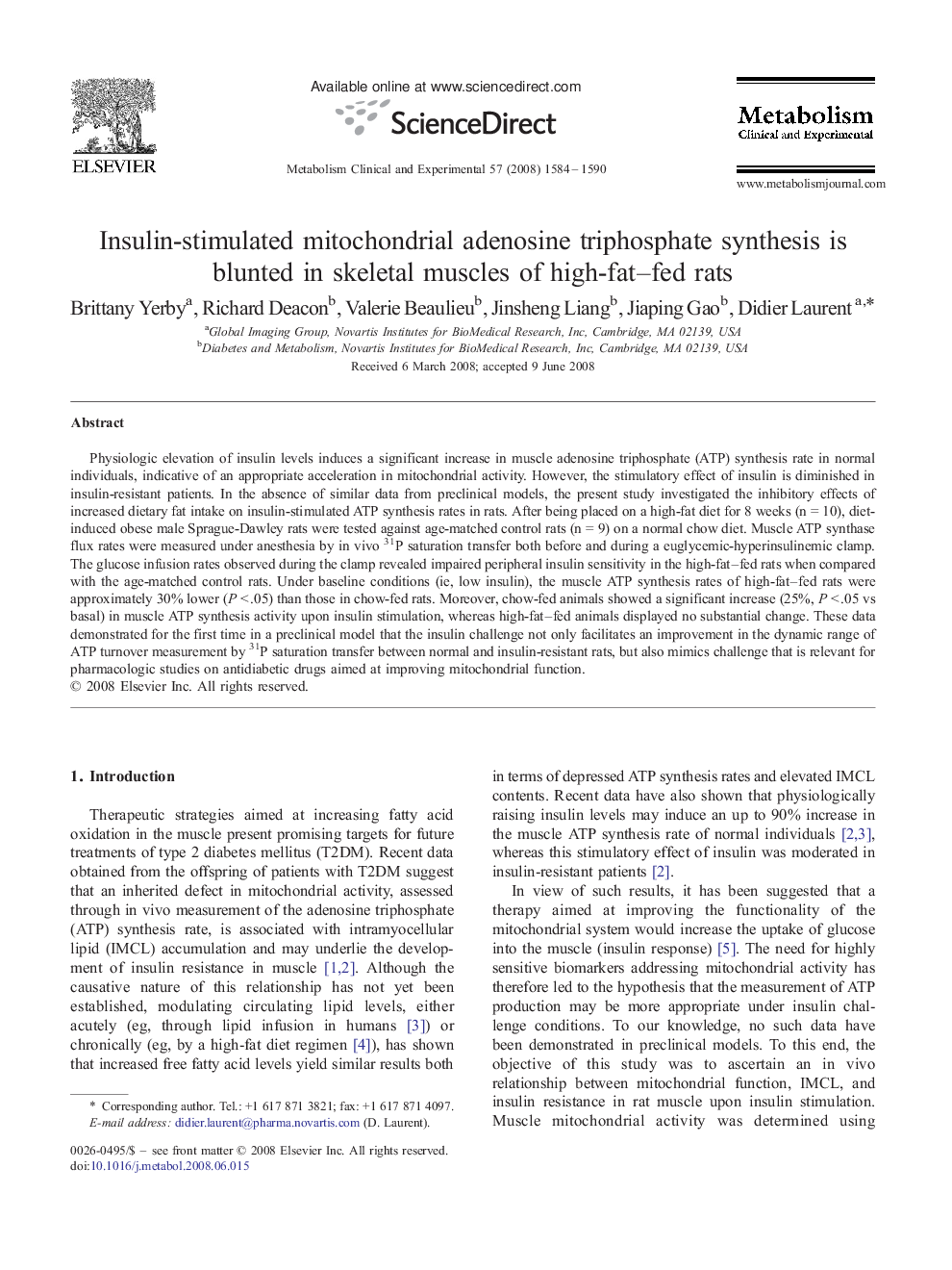| Article ID | Journal | Published Year | Pages | File Type |
|---|---|---|---|---|
| 2807457 | Metabolism | 2008 | 7 Pages |
Physiologic elevation of insulin levels induces a significant increase in muscle adenosine triphosphate (ATP) synthesis rate in normal individuals, indicative of an appropriate acceleration in mitochondrial activity. However, the stimulatory effect of insulin is diminished in insulin-resistant patients. In the absence of similar data from preclinical models, the present study investigated the inhibitory effects of increased dietary fat intake on insulin-stimulated ATP synthesis rates in rats. After being placed on a high-fat diet for 8 weeks (n = 10), diet-induced obese male Sprague-Dawley rats were tested against age-matched control rats (n = 9) on a normal chow diet. Muscle ATP synthase flux rates were measured under anesthesia by in vivo 31P saturation transfer both before and during a euglycemic-hyperinsulinemic clamp. The glucose infusion rates observed during the clamp revealed impaired peripheral insulin sensitivity in the high-fat–fed rats when compared with the age-matched control rats. Under baseline conditions (ie, low insulin), the muscle ATP synthesis rates of high-fat–fed rats were approximately 30% lower (P < .05) than those in chow-fed rats. Moreover, chow-fed animals showed a significant increase (25%, P < .05 vs basal) in muscle ATP synthesis activity upon insulin stimulation, whereas high-fat–fed animals displayed no substantial change. These data demonstrated for the first time in a preclinical model that the insulin challenge not only facilitates an improvement in the dynamic range of ATP turnover measurement by 31P saturation transfer between normal and insulin-resistant rats, but also mimics challenge that is relevant for pharmacologic studies on antidiabetic drugs aimed at improving mitochondrial function.
